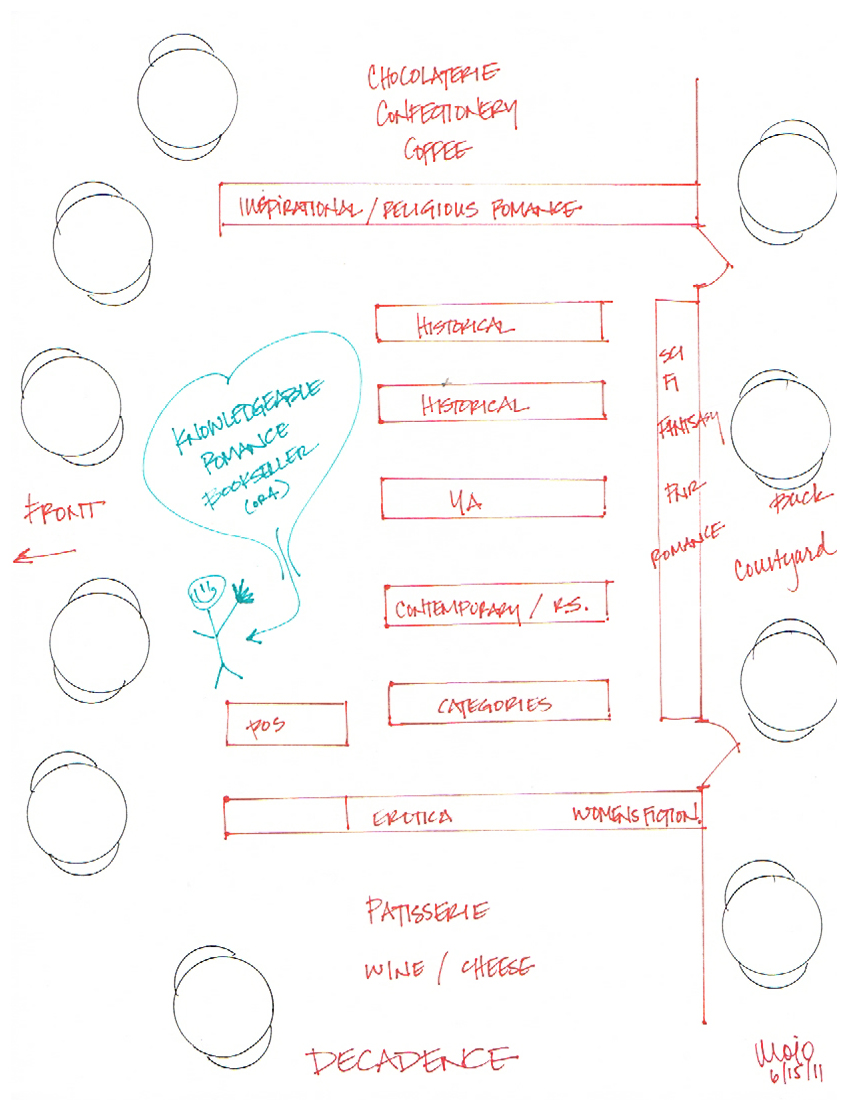The perfect bookstore has a name: Decadence.
This is not another one of my bookstore-of-the-future/how-to-save-brick-and-mortar-stores posts. This is about a bookstore I dreamed up while writing The Proviso four years ago, the one that spawned the previous bookstore posts. Specifically, it’s Giselle’s bookstore, which was torched, causing her to have to reboot her life at the grand ol’ age of 30 by going to law school. (Because that’s what everybody does when they have to reboot their lives, right? Right?)

This bookstore was in the River Market area of Kansas City, Missouri, and most closely resembles this building:

Giselle describes it this way:
I owned a bookstore for seven years […] I shared space with a patisserie on one side of me and a confectionery on the other. Maisy and Coco weren’t my business partners, exactly; we just figured if we knocked down our walls and unified our décor, we’d all make more money and it worked. […] Decadence wasn’t a bookstore with food. It was a destination. I stocked romance novels of all kinds. Couple that with Maisy’s gourmet chocolates and wine, and Coco’s pastries, the events we put on every weekend… I was doing very well; we all were. I was never going to be independently wealthy, but I made a lot of money doing something I loved.
I’ve been percolating this post for a long time, and after many, many Twitter discussions on the relationship between independent brick-and-mortar booksellers and the romance genre (not good) versus Borders’ and Barnes & Nobles’ willingness to step in where the independent booksellers won’t (but Borders, the more romance-friendly store, went bye-bye), I decided to do yet another perfect bookstore post.
Behold, my real idea of the perfect bookstore:

And I still think this combination of products and location would make some serious bank. (Add an Espresso machine in the basement…) (A used books section on the second floor…) (Events at lunch and on the weekends…)
UPDATE: August 18, 2015, over 4 years later…
I was re-inserting pictures that got lost in the move so a friend could link to them, so I figured I’d add a couple of notes.
1. Since YA has become a bigger part of the market now, that section would get expanded.
2. I’m reediting The Proviso, and Giselle adds this to her description:
“Wine, chocolate, sex. […] We had PMS survival kits. Better than Midol. Men came in specifically for those.”
Trust me, I’d send my husband across the metro to Decadence to get me a PMS survival kit.

